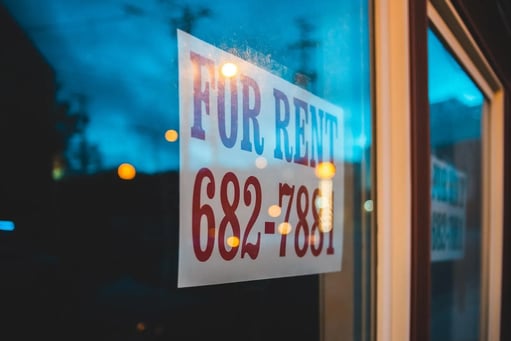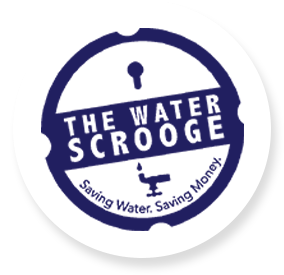5 min read
Using Rental Property ROI Calculator to Maximize Your Profits
![]() David Schwartz
Jun 16, 2023 4:30:24 AM
David Schwartz
Jun 16, 2023 4:30:24 AM

As a real estate investor or landlord, it's essential to evaluate deals carefully. Conducting a thorough rental property analysis is crucial when considering buying or selling a property. Luckily, the right rental property ROI calculator can simplify decision-making. It helps you find the best investment properties with the highest profit margins. You can analyze your next deal using the calculations below and uncover some surprising predictions.
Related: Long-Term Financial Impact of Water Waste
Creating Income Using Rental Properties
Renting out properties is a great way to build wealth. It's better than many other ways to make money from real estate. When you rent out a property, you can generate a steady income covering your mortgage and even leave you with some extra monthly profit. Plus, as you pay off your mortgage, you build equity in the property, which means you own more of it over time.
The income you make from renting out properties can be even higher than the cash you receive each month and the equity you build. This is because rental properties come with some tax benefits. These benefits can help lower your taxable income, saving you money on taxes. The depreciation of rental properties can save you thousands of dollars.
Looking to upgrade your rental property water usage? Check out the DIY products The Water Scrooge offers!
8 Key Factors to Consider With Investment Property Analysis
To assess the earnings of a rental property deal, it's essential to understand the key indicators to look for in a rental property analysis. Here are eight critical factors to consider in your cash flow analysis:
- Capital Expenditures - These are less frequent but significant expenses that contribute to the property's long-term value, such as property improvements and investments in equipment or assets.
- Ideal Tenants - Find reliable tenants who generate income by customizing marketing and rental applications to attract them.
- Income and Cash Flow - Rental income and net cash flow help assess property profitability.
- Location - Neighborhood impacts vacancy rates and desirability. Consider market factors when choosing an area.
- Operating Costs - These are the costs of keeping a rental property up and running. This includes repairs, insurance, utilities, and other expenses.
- Property Type - Think about the number of units and the type of house (for example, single-family, multi-family, or duplex) and weigh the pros and cons of each.
- Rental Strategy - Depending on the real estate market you want to reach, you can choose between short-term and long-term rentals, like vacation homes or long-term leases.
- Vacancy Rates - Measure how often a property is vacant. Consider vacancies when estimating rental costs.
Related: Green Landlording
How to Use a Rental Property ROI Calculator
Rental property ROI calculators estimate investment property performance using multiple factors. Investors must know the property's purchase price and current value. Then, you use this data to estimate the property's vacancy rate and set a fair rental price.
You can also estimate your property sale profit. Calculate the property's appreciation during your ownership and set the selling price based on its current value and your expected holding period.
- Closing Costs - These fees usually range from 2% to 5% of the purchase price and include fees from the lender, the notary, and the lawyer.
- Current Property Value - Hire an appraiser to determine the property's worth, aiding calculations and negotiations.
- Loan Term - Determine the rental property loan duration, usually 10 to 25 years.
- Mortgage Rate - Consult with your lender to understand the interest rate on the property loan.
- Rental Yield - Using market research, estimate the expected monthly rent and additional property income.
- Total Cash Investment - Consider the down payment and renovation costs as part of your investment decision.
To estimate the profitability of a rental property, you can rely on a rental property ROI calculator that uses basic property information. Rental property analysis software can be helpful in this regard. Conduct an online search for rental property calculators, explicitly looking for ones that align with your initial calculations. These calculators can provide valuable insights.
If you prefer to calculate rental income manually, there are several formulas you can use. Create a rental property analysis spreadsheet in Excel or Google Sheets, whichever platform you prefer, and start crunching the numbers. Accuracy in the deal analysis is crucial, so carefully determine the variables mentioned earlier before you calculate the ROI.
By utilizing a rental property ROI calculator and conducting thorough calculations, you can make well-informed decisions regarding the profitability of your rental property investment.
When to Use a Rental Property ROI Calculator
A rental property calculator is essential for investors to evaluate deals and properties. It helps predict profits and avoid costly mistakes in property selection. These calculators work for various properties, including single-family homes, multi-family homes, and apartments.
Whether you're a first-time investor or experienced, using a rental property calculator can improve decision-making and predict rental yield. Sharing your calculations with buyers can also speed up and enhance sales. Having the right rental property calculator is essential for successful investment transactions.
Understanding a Good ROI for Your Rental Property
Return on investment (ROI) is a crucial measure of expected profit in real estate. Rental properties typically have an ROI between 5% and 10%, with an ROI over 10% considered a good investment. It's essential to calculate ROI by considering factors like vacancy rates and operating costs.
Accuracy is key, so estimate conservatively to avoid overestimating returns and facing challenges. Be cautious when estimating vacancy rates and repair costs, as renovations in lower-end properties can significantly lower the ROI. By making accurate and realistic estimates, you can improve the reliability of your ROI calculations.
Are you trying to increase your ROI with your property? If so, The Water Scrooge’s products can save on utilities.
The 2% Rule
This rule is a guideline for investing in rental properties. It helps investors determine if a property's cash flow potential justifies its acquisition cost. According to this rule, investors aim for a monthly cash flow of at least 2% of the property's purchase price.
Key Cash Flow Equations for Passive Income Investors
Being familiar with various formulas for calculating property cash flow as an investor is essential. These formulas are necessary for conducting practical deal analysis. Here are seven cash flow equations that can assist you in evaluating properties:
- Capitalization Rate - The capitalization rate (cap rate) determines the potential return on a property based on its income.
- Cash Flow - This is the net money the property generates after deducting all expenses.
- Cash on Cash Returns - Cash on cash returns measure the cash flow generated from an investment to the initial cash investment.
- Internal Rate of Return (IRR) - This equation evaluates the profitability of an investment by considering the time value of money.
- Net Operating Income - This equation helps calculate the property's net income after deducting operating expenses.
- Rental Yield - The rental yield is a measure of the annual rental income expressed as a percentage of the property's value.
- Return on Investment (ROI) - ROI calculates the return percentages based on your property's profitability.
Your Responsibilities as an Investor or Rental Property Owner
Having a profitable and well-maintained rental property entails various essential duties. As a rental property owner or investor, it is crucial not to overlook the following responsibilities:
- Filling Vacancies - Actively find and screen tenants to avoid vacancies and keep your property occupied.
- Paperwork - Handle administrative tasks such as taxes and lease agreements accurately and efficiently.
- Property Maintenance - Ensure the property is well-maintained by contacting the right companies for repairs, renovations, and maintenance tasks.
Renting out a property can be a passive experience. Hiring a skilled property manager can relieve rental property owners of leasing responsibilities. These professionals can handle tenant screening, maintenance requests, and rent collection. A third-party property manager can make rental property investing attractive, allowing investors to passively generate cash flow and expand their portfolio without additional work.
Responsibilities of a Landlord
Managing rental units yourself can increase profits, but it comes with challenges. Landlords have various responsibilities, including property maintenance, repairs, advertising, tenant screening, and maintaining property standards. Administrative duties like handling bills, utilities, rent, budgeting, leases, and tax paperwork are also involved. If these tasks feel overwhelming, consider using property management software or hiring a company to assist you.
Upgrade Your Property and Save Money on Utilities With the Water Scrooge. Discover How Much You Can Save Today
A rental property ROI calculator is essential for real estate investors at any stage. You can assess a property's performance and plan ahead by focusing on the numbers. With the help of this tool, investors can choose profitable deals and improve their portfolios.
But, this is only part of your responsibilities, you want to maximize your properties’ efficiency levels, and installing products to help conserve water is a great start. Shop The Water Scrooge’s line of products and start saving today.
Related: DIY Plumbing for Energy-Efficiency

